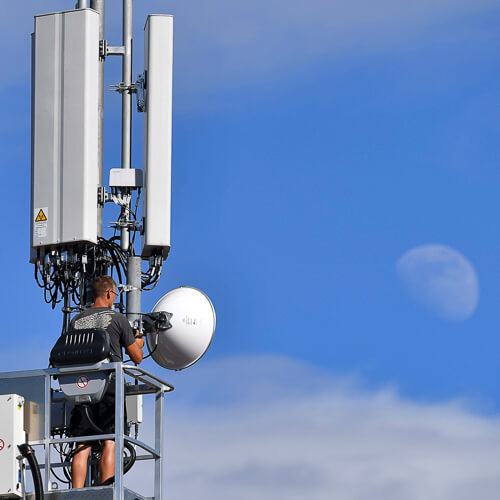
"Our rollouts will continue, our RAN R&D will continue, and we will continue to innovate in partnership with MNOs," Parallel Wireless wrote in a new post to LinkedIn.
The post, signed by CEO Steve Papa "and the PW team," comes roughly a week after the company engaged in a significant round of layoffs. The company did not disclose the scale of the layoffs, but The Mobile Network reported that it could be as high as 80% of Parallel's staff.
In its new post, Parallel offered a mea culpa and asked for patience.
Specifically, the company argued it "felt pressure from customers to 'sprint' to solve the hugely diverse technical needs for the wide variety of global mobile networks," according to its post. However, "in a Covid constrained environment the realities of the longer times to develop and introduce new technology into the network became increasingly clear and we mutually concluded with MNOs [mobile network operators] that instead of a sprint, we should be managing for a marathon. A marathon where we first focus on a self-sustaining business for key segments of the industry and broaden from there."
The company also pointed to three main factors affecting its situation: the somewhat sluggish adoption of open RAN technology around the world, global economic market conditions and troubles with its supply chain.
Figure 1:  (Source: dpa picture alliance/Alamy Stock Photo)
(Source: dpa picture alliance/Alamy Stock Photo)
"While there are plenty of forced and unforced errors in our sprint that we could debate they are part and parcel to any ambitious undertaking," the company wrote. "Thank you for the continued interest in our aspirations to improve global connectivity. More in the coming weeks!"
Chip Damato, EVP of Inland Cellular, which is one of Parallel's marquee customers in the US, confirmed to Light Reading that Parallel's CEO had assured him there would be "no consequences" from the layoffs. But he added that he was looking forward to further discussion on the topic.
Damato was at the center of a lengthy Washington Post article in 2020 detailing his company's deployment of Parallel Wireless' open RAN network equipment. During a trade show presentation last year, Damato said the operator's shift to open RAN technology helped reduce its overall capital expenses by 40%. "O-RAN was almost a necessity for us," he said at the time.
However, Inland remains one of the only network operators in the US, beyond Dish Network, to commercially deploy open RAN. Inland counts 41,000 customers across 140 cell sites in Eastern Washington and North Central Idaho.
Of course, Parallel's remaining team will likely face an uphill battle in gaining new customers and keeping its existing ones. The company's rivals – from Ericsson to Samsung to Mavenir – are undoubtedly circling Parallel's customers and customer prospects.
Finally, in the US, it's worth noting that Cellcom is taking down its open RAN network in Wisconsin due to the difficulties it has faced in getting equipment for the operation. The company said Parallel Wireless provided software for the network, but that the companies couldn't obtain compatible radios due to vendors' minimum volume purchasing requirements.
Related posts:
— Mike Dano, Editorial Director, 5G & Mobile Strategies, Light Reading | @mikeddano
About the Author(s)
You May Also Like



.jpg?width=300&auto=webp&quality=80&disable=upscale)








